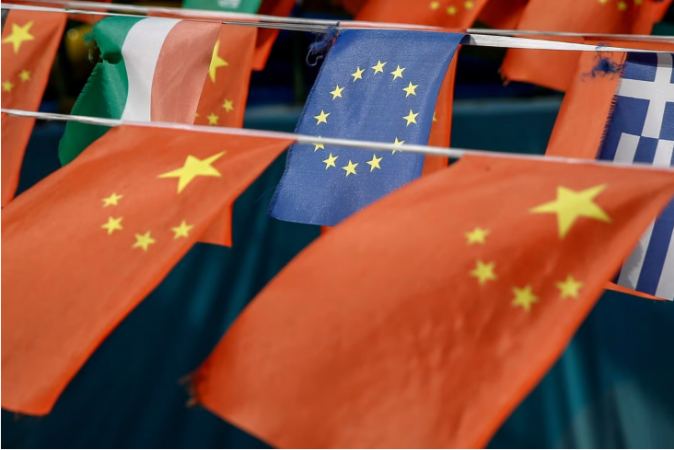
BEIJING: Rising demand for decoupling and the threat of trade protectionism have worried Chinese businesses doing business in the EU, and a recent report indicates trade confidence has hit a three-year low. According to a report by the China Chamber of Commerce to the European Union (CCCEU) and international consultant Roland Berger, the main factors dampening sentiment are a complex political environment, a quick roll-out of unilateral economic and trade instruments, as well as a stalemate. Negative public opinion.
The report, which was released on Friday, found that 53% of respondents believed that the business environment had deteriorated over a 12-month period covering the second half of 2021 and the first half of this year. I had a decrease in sentiment for the third year in a row. The survey included 150 Chinese businesses operating in the European Union this summer. Additionally, it stated that the deteriorating macroeconomy had created a less favorable business environment, and 38% of respondents believed that a divisive political environment had a negative impact on their business operations.
Also Read: US threatens China to tackle climate change and drug trafficking
According to 80% of the businesses surveyed, the COVID-19 pandemic, supply chain disruption and geopolitical dynamics, are having an increasingly negative impact on both the global economy and businesses operating in the EU.
According to the report, Chinese businesses operating in the EU are finding it challenging as Europe has built a wall around its high-tech and telecommunications industries.
Chinese businesses have expressed concerns about the EU's "unilateral economic and trade policy tools", such as a toolkit to reduce foreign interference in research and innovation, the 5G cyber security toolbox and foreign direct investment screening.
In the hi-tech sector, he expressed concern that it could lead to "the 'disintegration' of the two economies and fragmentation of international technical standards."
The report said that "some in the EU are saying that the EU should cooperate with so-called like-minded countries."
The risk of a supply chain and value chain "breakdown" as a result of such rhetoric will only increase. Chinese businesses operating in the EU are hoping the "decoupling risk" will not pass as it will increase costs and reduce efficiency.
In a bid to reduce its dependence on China in several important and strategically important sectors, including the hi-tech and digital sectors, Brussels has increased its scrutiny of foreign investment.
Market and consumer pressures are currently pressuring EU policymakers to follow US leadership and support legislation that will show that the operations of multinational corporations in China are completely transparent and the use of forced labor in their supply chains. do not.
Deteriorating relations between Beijing and the US and other Western countries, such as Britain, Canada and Australia, also pose a threat to businesses doing business in the EU.
Despite this, Chinese companies in the EU had an estimated total revenue of €163 billion (US$160 billion) last year, an 8.4% increase from a year earlier. 41% of the businesses surveyed forecast higher sales this year as well.
According to the survey, 70% of businesses thought that EU-China economic ties would continue to strengthen and that the bloc would remain a desirable destination for Chinese investors. About 80% of respondents predicted that the EU would play a bigger role in their companies' global strategies, and most intended to increase their presence along the entire value chain.
According to the report, Europe continues to appeal to Chinese companies working towards sustainable development because it values research and innovation and is full of opportunities.
Since 2020, China has been the EU's top supplier of imported goods, with trade totaling US$828 billion in 2017.
According to Eurostat, China provided 38% of the EU's high-tech imports in 2021, including goods for electronics, aerospace, pharmaceuticals and scientific instruments.
Investing at US$5.1 billion or 3.5% of the total in 2021, the European Union is also the third largest source of foreign direct investment in China after Hong Kong and Singapore.
According to CCCEU President Xu Haifeng, mutually beneficial cooperation will continue to be the cornerstone of China-EU relations in the future.
According to the report, maintaining the China-EU Comprehensive Strategic Partnership, protecting the multilateral trading system, ensuring a fair and open business environment, and enhancing cooperation in finance and investment can further the development and cooperation between China and the European Union. are necessary for.